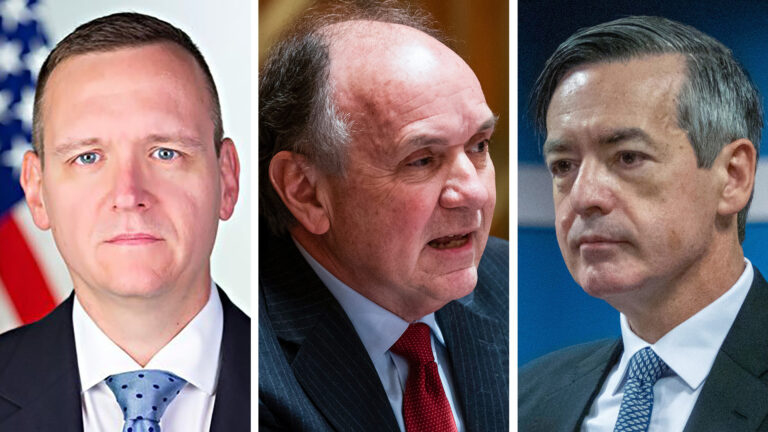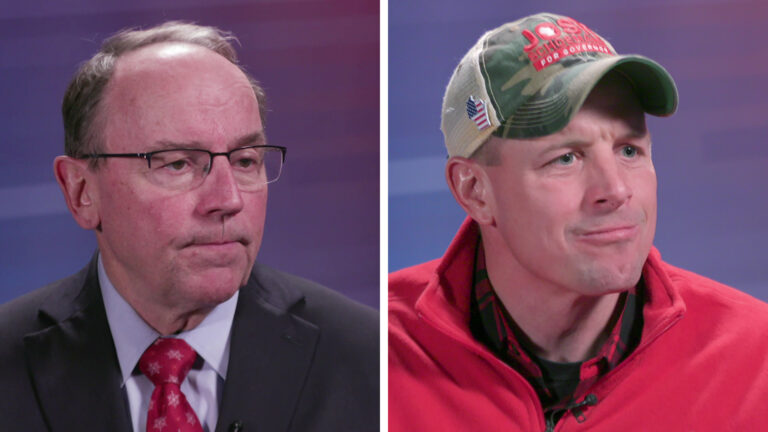Frederica Freyberg:
Now to health news. October 1 is when open enrollment in the health insurance marketplace as prescribed by the Affordable Care Act begins. Until this week Wisconsinites had no idea what kinds of products would be in that marketplace, also known as exchanges. On Tuesday the state insurance commissioner announced that 13 insurers had filed for state and federal approval to offer health coverage plans in the federal exchange. Additionally, nine more insurers seek approval to offer insurance programs to employers. All but one of these companies is Wisconsin based. Bobby Peterson is a health coverage specialist with the non-profit ABC for Health based in Madison. Bobby, thanks for being here.
Bobby Peterson:
You're welcome. Good to be here.
Frederica Freyberg:
What is your reaction to the number of plans we’ve seen now being put forth?
Bobby Peterson:
I thought it was very strong turnout. I think it's going to represent a lot of the different markets in Wisconsin. So I think it’s good news for consumers.
Frederica Freyberg:
Was this a number of insurers that kind of surprised people like yourself?
Bobby Peterson:
Well, there have been a lot of discussions early on about how many were actually going to seek to participate. This isn’t- The deal isn't over yet. There is still the possibility some could pull out. The state of Wisconsin has approved them. I think, yes, we were very pleased with the number of plans that are participating. There is overlap between many of the existing plans that are in the BadgerCare Plus program. So that might help in terms of some of the continuity between plans.
Frederica Freyberg:
Do you know how it compares to other states?
Bobby Peterson:
You know, there have been some states have had very few plans, and some strong showings. Wisconsin was kind of an open question. And I think, let's see, I had forecasted early on that, be prepared that not many plans could apply for the marketplace and quite a few did.
Frederica Freyberg:
Why did you think quite a few did, or more than potentially anticipated?
Bobby Peterson:
Well, I think it is a probably a sense of the competitive nature of the Wisconsin marketplace. I think that a lot of plans are potentially going to be losing some of their folks when the governor’s plans terminates parents from BadgerCare. That’s close to 100,000 people that will be looking for new coverage. Many of those are customers of current health plans. So that dynamic creates some sense of, we don’t want to lose these people. Let’s be participating in the marketplace and maintain our customer base.
Frederica Freyberg:
I looked at that list and I could see some of the kind of blue chip carriers. Then some names I didn’t really recognize. Are there new people to the market?
Bobby Peterson:
There are new people joining the marketplace, and I think that’s not necessarily a bad thing. Obviously, you know, folks that have name recognition are probably going to have a leg up with folks in Wisconsin. But competition might be a good idea, and I think it will be a good idea. It's really going to help drive down some of the costs.
Frederica Freyberg:
That's what I was just going to ask. What do we know about the costs, and how much does that competition in the marketplace help that?
Bobby Peterson:
Yeah, it’s an open question yet. We don’t know what it's going to cost. But I think the whole idea behind the marketplace is that, you know, the government role in this is keeping fear and greed out of the equation, really. On one side people were afraid because pre-existing condition they couldn’t get coverage. They needed to get coverage. The greed part of it was that insurance companies really didn’t have controls on the profits they were going to be able to take. And because when there is fear involved, people might be paying more than they should.
Frederica Freyberg:
In terms of these plans, though, and the competitive nature, do they get to compare notes as to kind of– I know they have to offer some things, but in terms of the costs of those?
Bobby Peterson:
Oh, yeah. They’ll have opportunities to compare the types of plans. There will be four medal plans between platinum, gold, silver and bronze. They can pick the type of plan they want. Theres also a catastrophic plan that's available.
Frederica Freyberg:
That's the consumer, but I mean in terms of the insurers, carriers themselves, do they sit down and go, okay, well, here's what’s it’s going to cost for this. Or is it really open whereby, you know, they drum up the lowest cost and then present that to the consumer?
Bobby Peterson:
I think they really have– This is competition and so they are going to be looking at trying to achieve that right price point that they will pull in customers. Also be able to not lose money on the process. I think it is– it’s not all open on the front end. Once those prices come out they’ll be looking over their shoulders to see what their competitors come in at.
Frederica Freyberg:
Are you familiar with where regionally most of these plans offer coverage. Are there bare spots?
Bobby Peterson:
You know, it doesn’t look like there will be bare spots in Wisconsin. South central Wisconsin has a strong history of managed care plans operating in this area, Group Health, Unity, B Plus, those are all plans in the game.
Frederica Freyberg:
Now we know that people are supposed to be able to start enrolling October 1st. Do you think we’re going to make that deadline?
Bobby Peterson:
Yeah. I think that it– You know, people are trying to throw out scare tactics and say it is not going to happen, it shouldn’t happen. But things are in motion, and yes, it is going to be a rough ride for a lot of people, because we’re talking about major system dislocation. But for a lot of people, 80% of the folks out there, they not even going to notice it. Because nothing changes for them.
Frederica Freyberg:
Now, if you are looking for coverage though one of these exchanges, does the consumer basically go online and do their own homework, or is there someone out there to assist?
Bobby Peterson:
That’s part of the piece of this that’s a little bit shaky, I think. There is online ability. It's going to be a website you'll be able to go through. For some people that can navigate that system well they’ll be able to do it. For others, they may need additional assistance. Statewide navigator grants are supposed to be announced on the 15th from CMS. That will be infrastructure of assistants. There are also enrollment networks being established through all the county consortium, a lot of partners and groups. They'll be certified application assisters. Hopefully, with all these pieces in place, we’ll have folks out there that understand the programs, direct people to the right program, and help them get the coverage they need and deserve.
Frederica Freyberg:
From what you’ve seen so far is the healthcare law playing out as planned or are there significant hitches?
Bobby Peterson:
Well, you know, I think at the biggest level is playing out as it’s planned. As I said, it's taking greed out of the equation, and it's taking fear out of the equation. It's giving people options. Pre-existing condition will be a thing of the past, and people will have an opportunity to get coverage through marketplace that is driven by competition. And I think it’s going to be a good thing for people for coverage, and a good thing to help reduce costs.
Frederica Freyberg:
Alright. Bobby Peterson, thank you.
Bobby Peterson:
You’re welcome.
Search Episodes
News Stories from PBS Wisconsin

Donate to sign up. Activate and sign in to Passport. It's that easy to help PBS Wisconsin serve your community through media that educates, inspires, and entertains.
Make your membership gift today
Only for new users: Activate Passport using your code or email address
Already a member?
Look up my account
Need some help? Go to FAQ or visit PBS Passport Help
Need help accessing PBS Wisconsin anywhere?

Online Access | Platform & Device Access | Cable or Satellite Access | Over-The-Air Access
Visit Access Guide
Need help accessing PBS Wisconsin anywhere?

Visit Our
Live TV Access Guide
Online AccessPlatform & Device Access
Cable or Satellite Access
Over-The-Air Access
Visit Access Guide
 Passport
Passport


















Follow Us